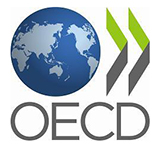Taxes directly affect Americans by compelling them to surrender part of their income to the government, and indirectly since the taxing power can positively or negatively affect economic growth.
In the U.S., our tax regimes are in serious need for reform, both at the state and federal level. Our tax code fails to sufficiently incentivize investment, the primary driver of economic growth. And it hobbles U.S. companies as they compete internationally.
IPI believes that the purpose of taxes is to raise the revenue necessary to fund the legitimate functions of government while imposing the least possible impact upon the functioning of the economy. We therefore believe that taxes should be simple, transparent, neutral, territorial and competitive.
Because of its tremendous potential to stimulate real long-term economic growth, tax reform should be a top priority of policymakers.
Hillary Clinton Channels China's Efforts to Control Investors
Hillary Clinton and the Chinese government both want to force investors to hold stocks longer. The Chinese are using coercion and the secret police; Hillary only wants to use the tax system—at least for now.
Why No One Will Reform Washington
The R&D tax credit has been a “temporary” provision in the tax code since 1981. Each time the credit is about to expire, Congress rallies support to renew the tax break from those who benefit from it. As the libertarian IPI puts it, “this cycle has repeated itself for years ... Congress essentially uses this cycle to raise money for re-election, promising the industry more predictability the next time around.”
Coalition Letter Urging Congress to Defend U.S. Interests from BEPS Tax Grab
Twenty free market and taxpayer advocacy organizations warn Congress about the dangers posed to U.S. interests and the global economy by the work of the Organization for Economic Cooperation and Development (OECD) on Base Erosion and Profit Shifting (BEPS).
A Perfect Example of How Not to Run a Country
This a tale of a country so immersed in fiscal responsibility and anti-growth economic policies that it has threatened the global financial system—and I am not talking only about Greece.
"King" Obama Decides to Raise Corporate Taxes and No One Can Stop Him
If a king wants to impose a huge new business tax he can just do it. And that’s what King Obama did with his just-announced change to overtime pay for salaried employees.
Let the Strategic Petroleum Reserve Fund Our Highways
Congress is looking for ways to fund the Highway Fund once again, but members could do it without raising taxes—by sunsetting the Strategic Petroleum Reserve.
Rand Paul Proposes the Boldest Tax Reform Plan Yet
Paul's plan would “blow up” (his words) the incomprehensible U.S. tax code and start from scratch with a simple, low and fair tax.
New Push For Internet Sales Tax
Critics say the provision would allow states to harass businesses. "It opens the door to a grotesque expansion of state tax collection authority that is almost certainly unconstitutional, and places mandates upon the states that are probably unconstitutional as well," said IPI's Tom Giovanetti.
Coalition Letter Opposing Remote Transactions Parity Act
Like the failed Marketplace Fairness Act, this act would dismantle proper limits on state tax-collection authority while potentially causing serious damage to electronic and interstate commerce.
Chaffetz Bill More Dangerous Than Marketplace Fairness Act
A new online sales tax bill introduced today by Congressman Jason Chaffetz (R-Utah) is not only even more harmful than the Marketplace Fairness Act toward small businesses and interstate commerce, but also opens the gates to an unprecedented expansion of taxation and taxpayer harassment by out-of-state tax collectors.










